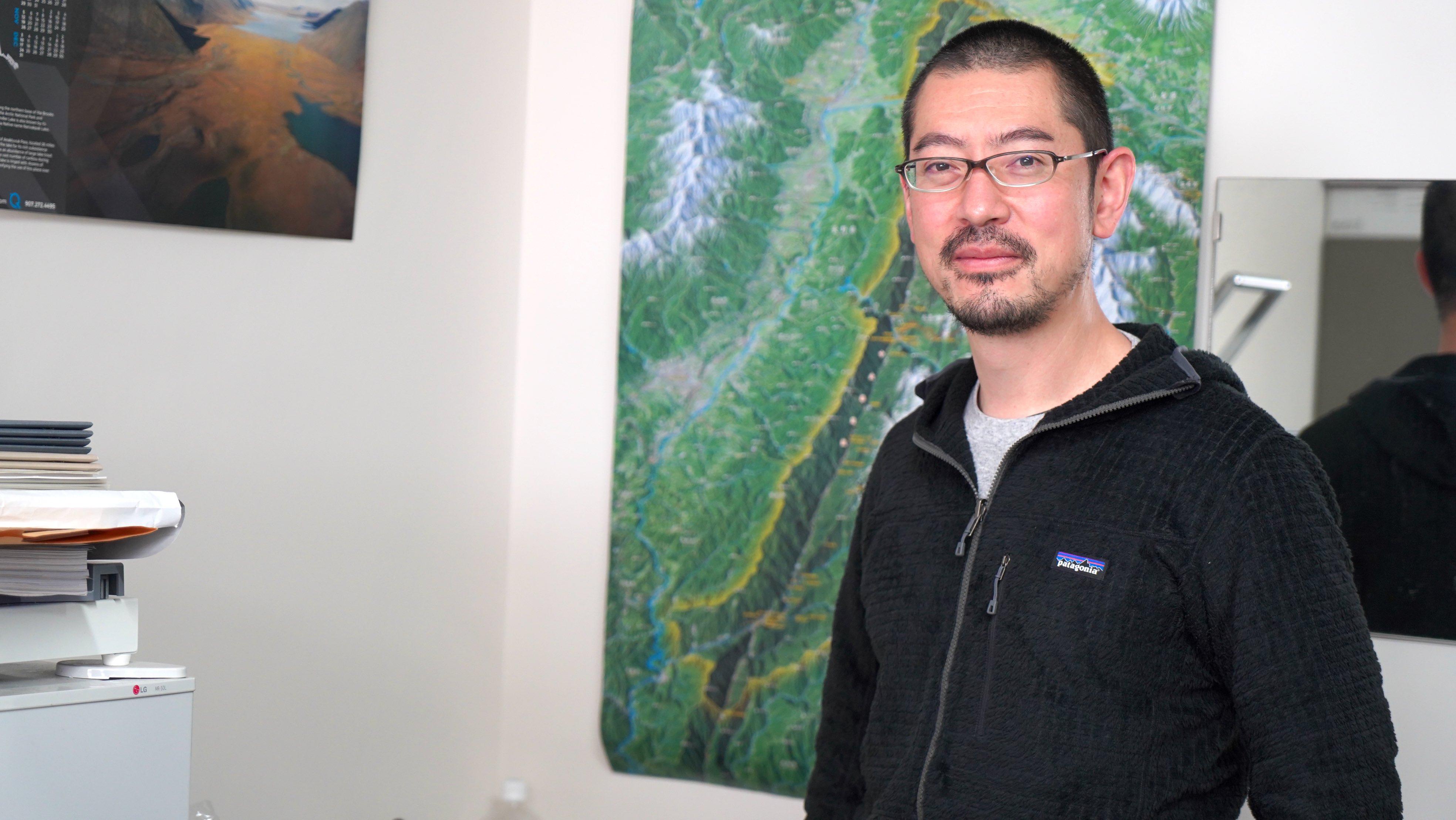 What do you specialize in?
My specialty is micrometeorology. This discipline examines phenomena that
occur in the atmosphere near the surface of the earth, up to about 1000
meters. In recent years, scientists are trying to clarify how
greenhouse gases such as carbon dioxide and methane, which are thought to
cause global warming, are exchanged between the atmosphere and the
surface of the earth. And this exchange is greatly affected by the
atmospheric conditions near the ground surface such as temperature and
wind. I use my knowledge of micrometeorology to measure this greenhouse gas
exchange on various surfaces. Currently, I am conducting research in the
boreal forests of Alaska, Lake Suwa, and the alpine ecosystem of the
Central Alps in Japan.
What do you specialize in?
My specialty is micrometeorology. This discipline examines phenomena that
occur in the atmosphere near the surface of the earth, up to about 1000
meters. In recent years, scientists are trying to clarify how
greenhouse gases such as carbon dioxide and methane, which are thought to
cause global warming, are exchanged between the atmosphere and the
surface of the earth. And this exchange is greatly affected by the
atmospheric conditions near the ground surface such as temperature and
wind. I use my knowledge of micrometeorology to measure this greenhouse gas
exchange on various surfaces. Currently, I am conducting research in the
boreal forests of Alaska, Lake Suwa, and the alpine ecosystem of the
Central Alps in Japan.
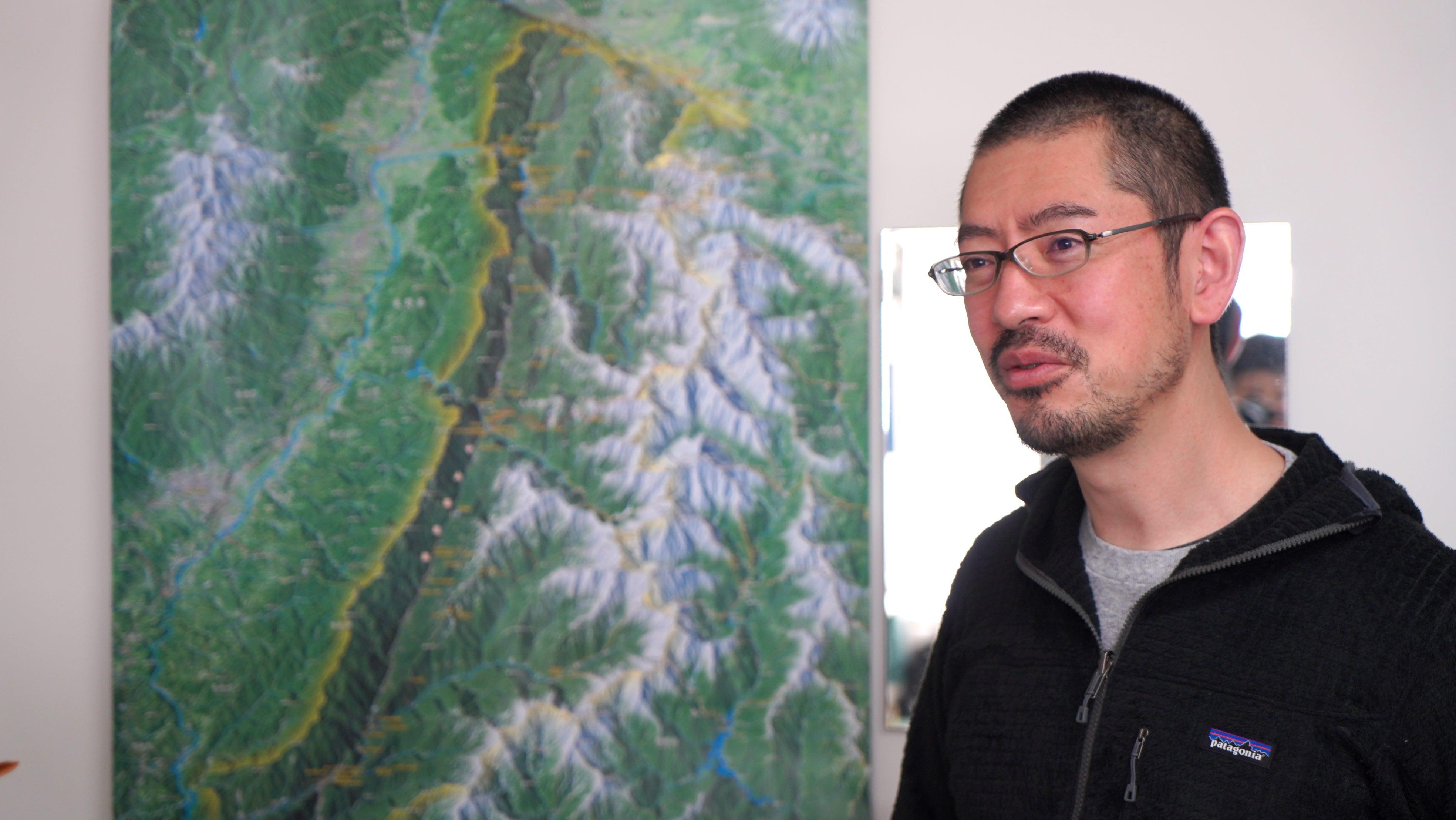 Why did you become a researcher?
It's hard to explain the specific reason, but I took a year off during my
master's program and spent time as a trainee at the University of
Edinburgh. During this time, I was able to participate in observation programs
in Scotland and the Brazilian rainforest. I discovered the joy of research
during this time. Of course, the work of a researcher is not fun all of the
time. However, having enjoyed researching during the gap year
influenced me to decide to proceed to my PhD program and to become a researcher.
Why did you become a researcher?
It's hard to explain the specific reason, but I took a year off during my
master's program and spent time as a trainee at the University of
Edinburgh. During this time, I was able to participate in observation programs
in Scotland and the Brazilian rainforest. I discovered the joy of research
during this time. Of course, the work of a researcher is not fun all of the
time. However, having enjoyed researching during the gap year
influenced me to decide to proceed to my PhD program and to become a researcher.
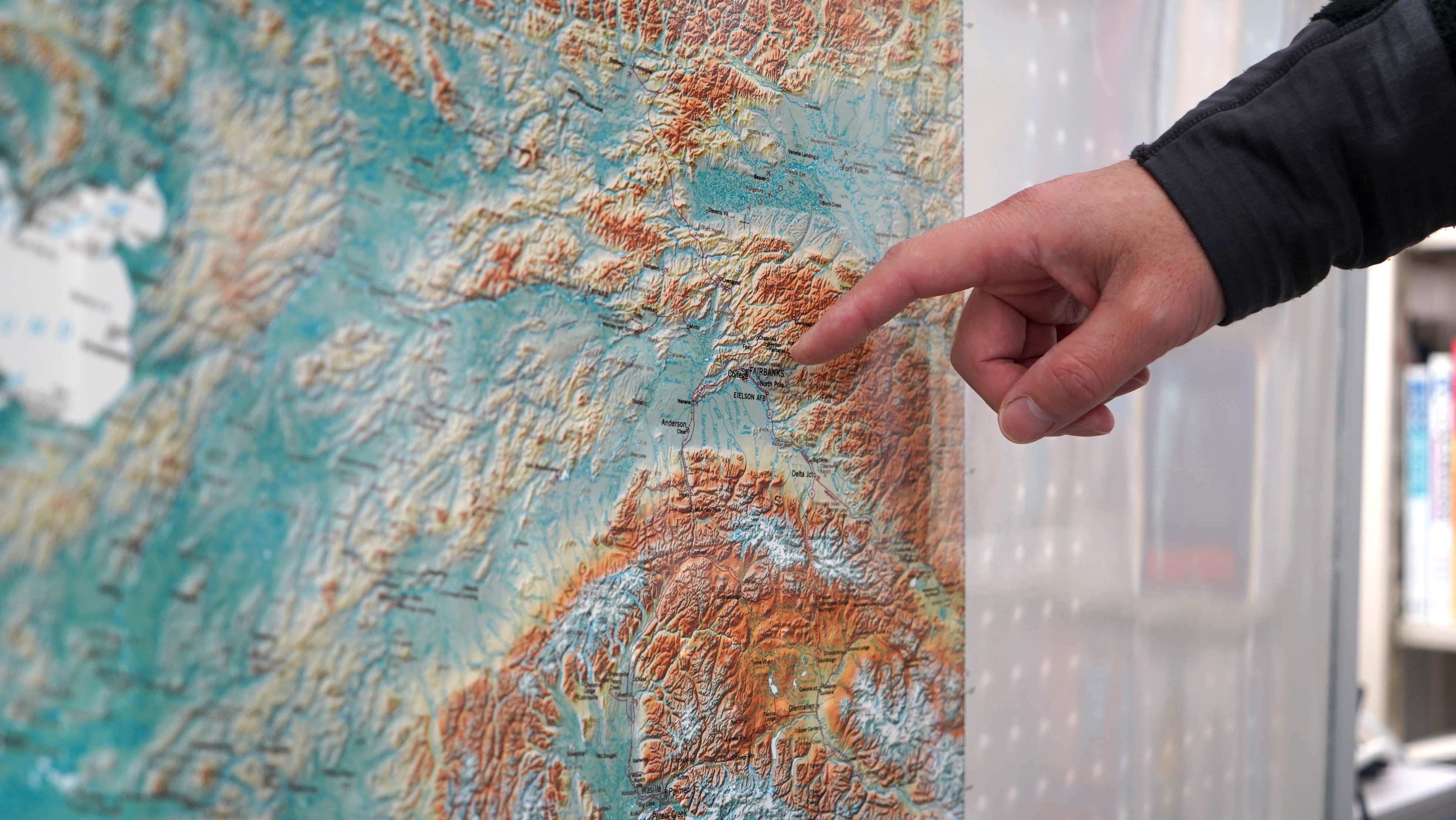 Could you give us examples of some moments you enjoy as a researcher?
I carry out automatic observations in the field, and I am always looking
forward to checking the collected data and seeing what kind of phenomenon
is occurring there. It is very interesting to infer the natural phenomena
occurring in the field from the changes in the numbers of the obtained
data. We often make hypotheses and analyze data during research, and the
moment when the hypothesis is proved by data analysis and research papers
written based on it is accepted, I feel our efforts have been exonerated.
Do you have goals you are currently working towards?
My current research theme is methane emissions from lakes. The current goal
is to produce important research results on this subject. Methane emissions
from lakes are complicated by processes such as methane production and
consumption by microorganisms, factors that affect them, and lake water
mixing. We aim to clarify such effects and to be able to predict future
changes in methane emissions from lakes. Another goal I have, although it
is not a specific goal, is to continue daily research and accumulate such
research. I would like to continue to constantly publish my research
results as papers.
Could you tell us about three items such as work tools or books?
One of my favorite items is the observation sensor. Here are some photos of
them in the field.
Could you give us examples of some moments you enjoy as a researcher?
I carry out automatic observations in the field, and I am always looking
forward to checking the collected data and seeing what kind of phenomenon
is occurring there. It is very interesting to infer the natural phenomena
occurring in the field from the changes in the numbers of the obtained
data. We often make hypotheses and analyze data during research, and the
moment when the hypothesis is proved by data analysis and research papers
written based on it is accepted, I feel our efforts have been exonerated.
Do you have goals you are currently working towards?
My current research theme is methane emissions from lakes. The current goal
is to produce important research results on this subject. Methane emissions
from lakes are complicated by processes such as methane production and
consumption by microorganisms, factors that affect them, and lake water
mixing. We aim to clarify such effects and to be able to predict future
changes in methane emissions from lakes. Another goal I have, although it
is not a specific goal, is to continue daily research and accumulate such
research. I would like to continue to constantly publish my research
results as papers.
Could you tell us about three items such as work tools or books?
One of my favorite items is the observation sensor. Here are some photos of
them in the field.
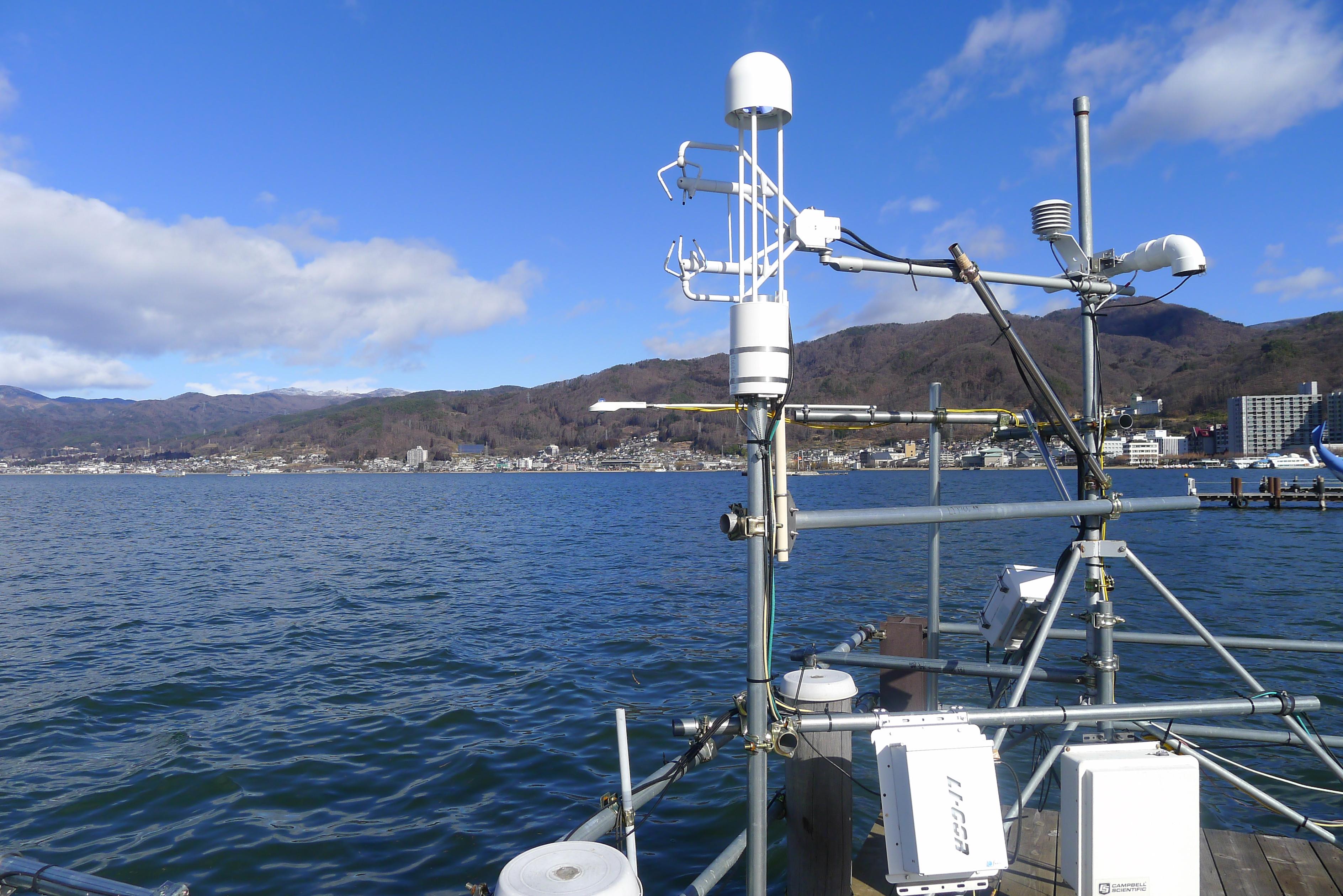
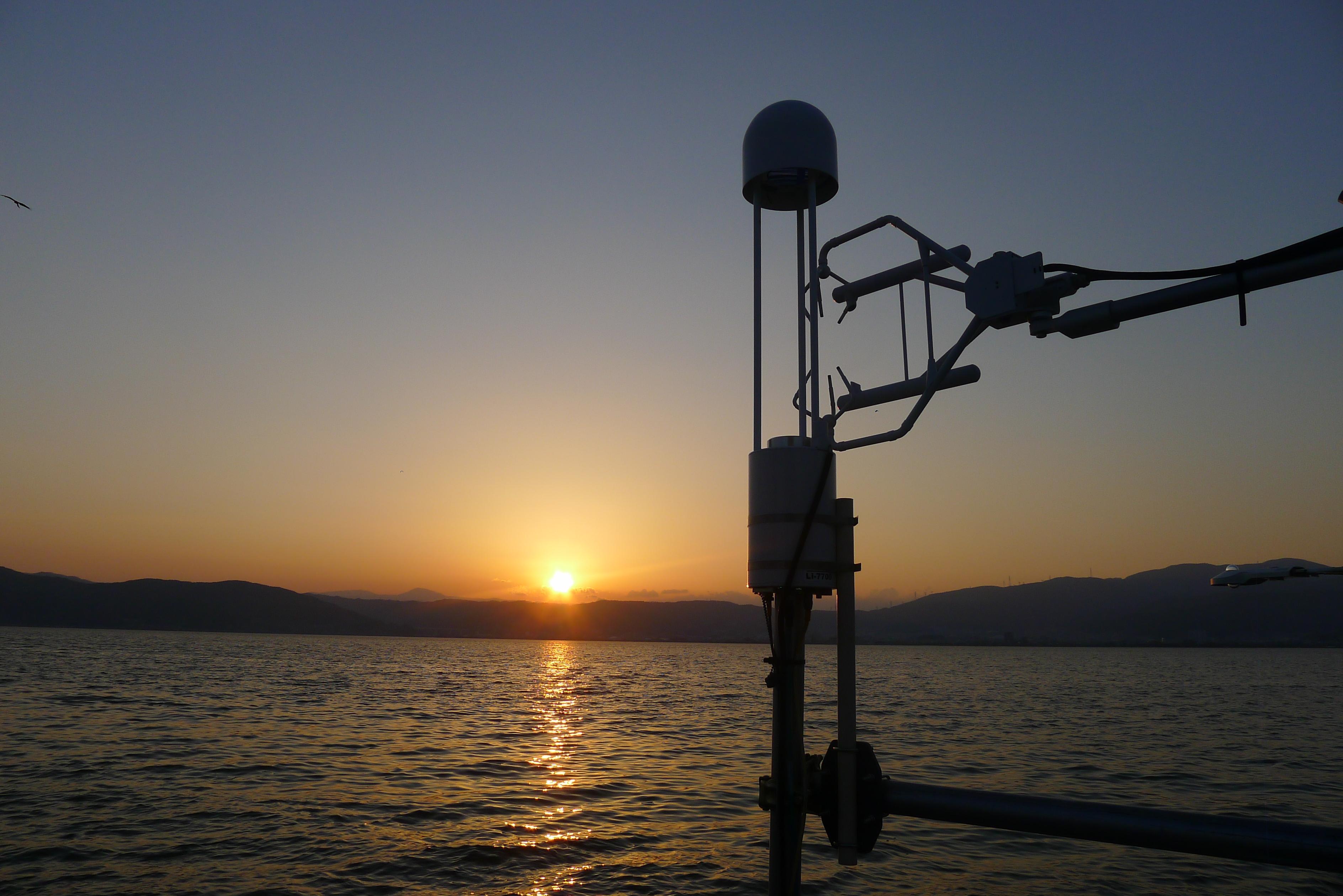 This is Suwa Lake.
This is Suwa Lake.
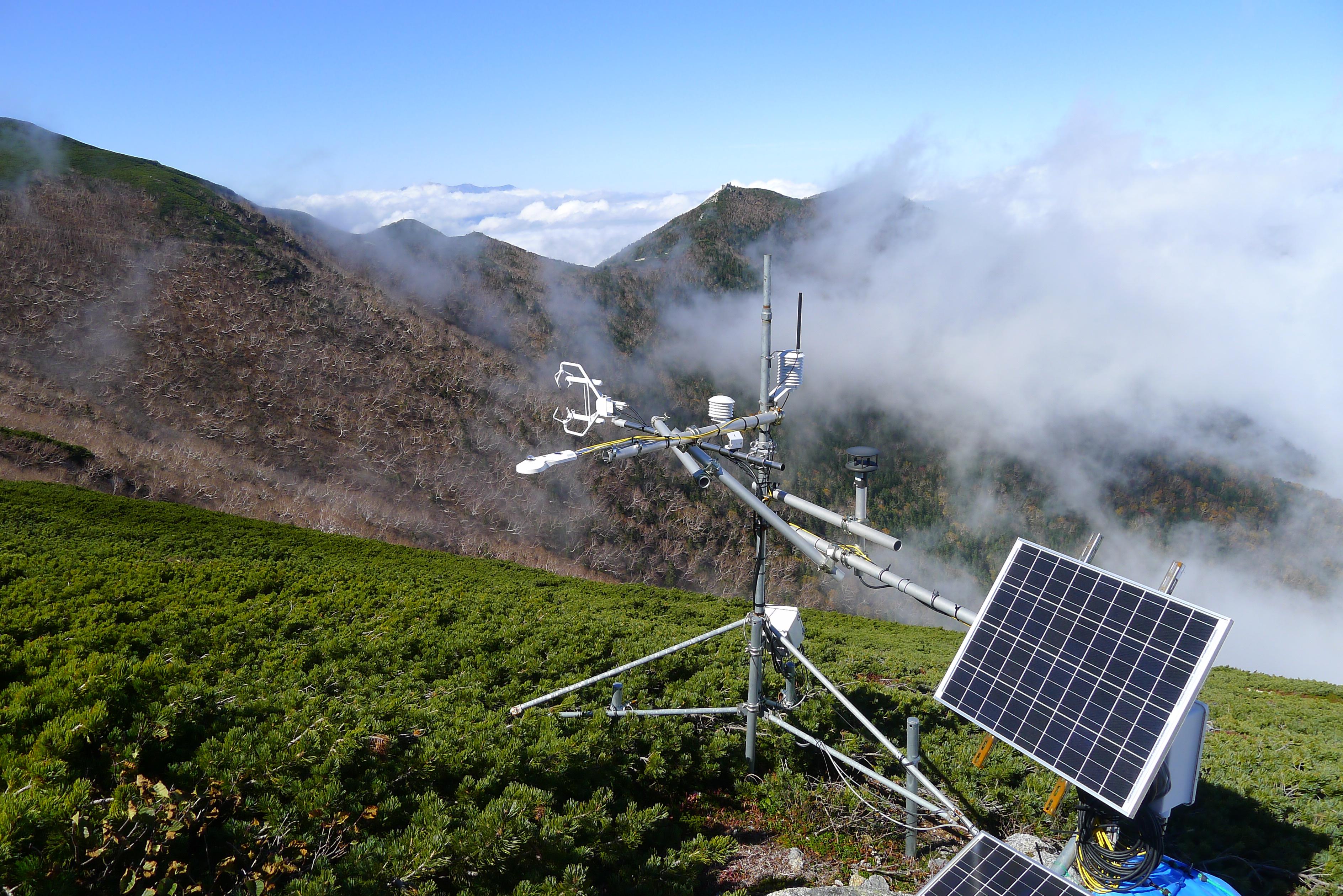
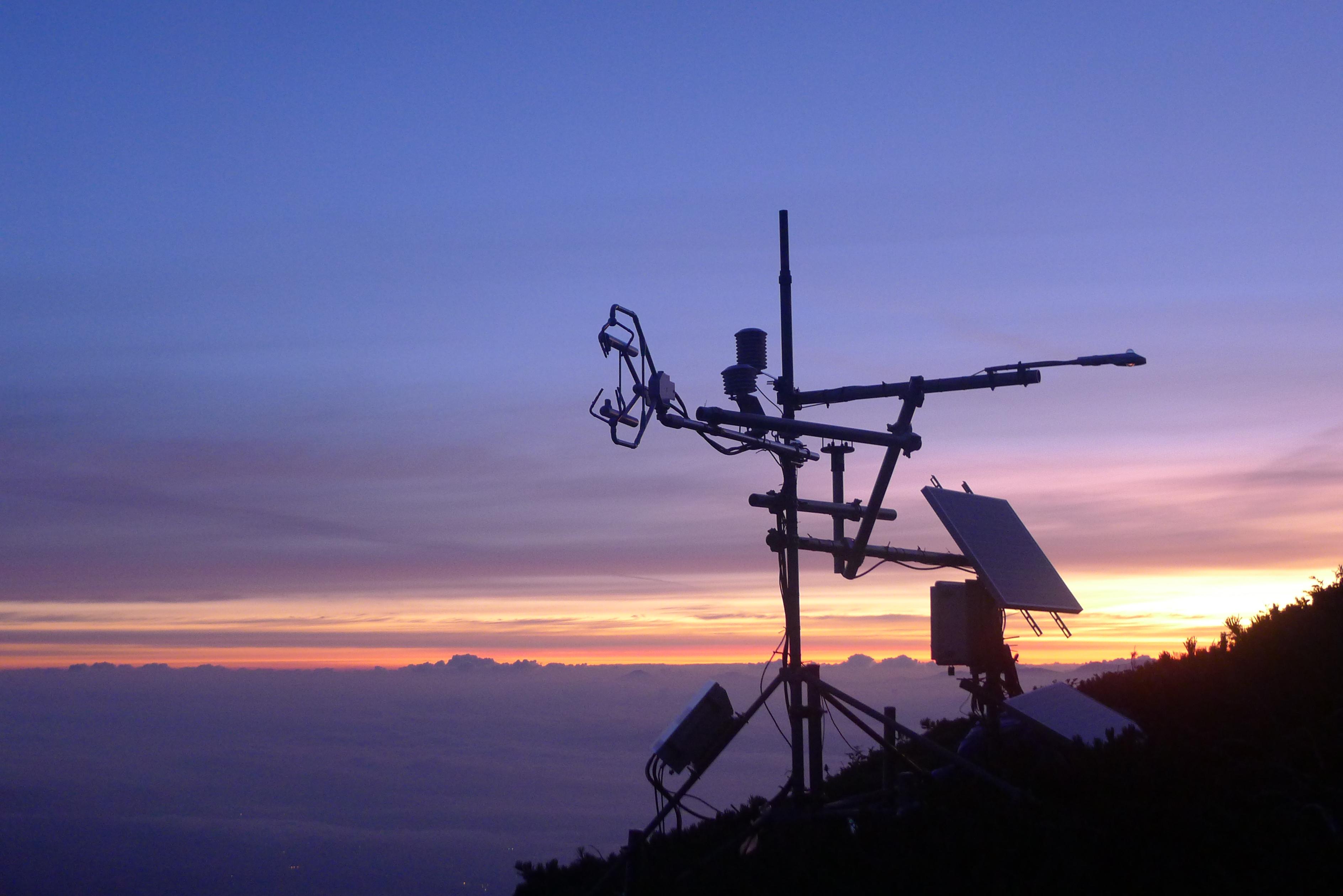 And the rest are at observation sites in the Central Alps.
And the rest are at observation sites in the Central Alps.
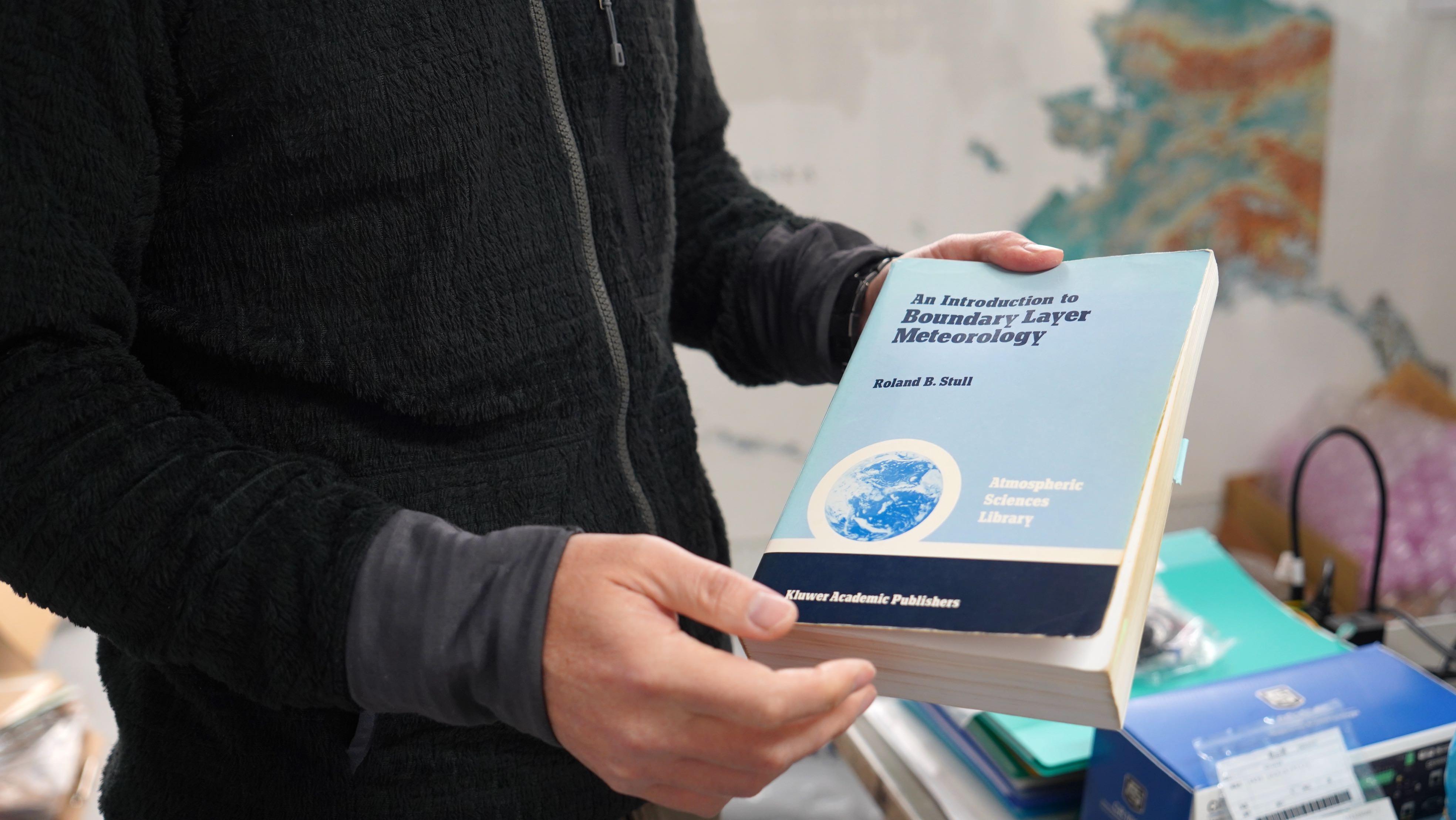 A reference book I enjoy. Although it is not necessarily new, it is an
undisputed classic.
A reference book I enjoy. Although it is not necessarily new, it is an
undisputed classic.
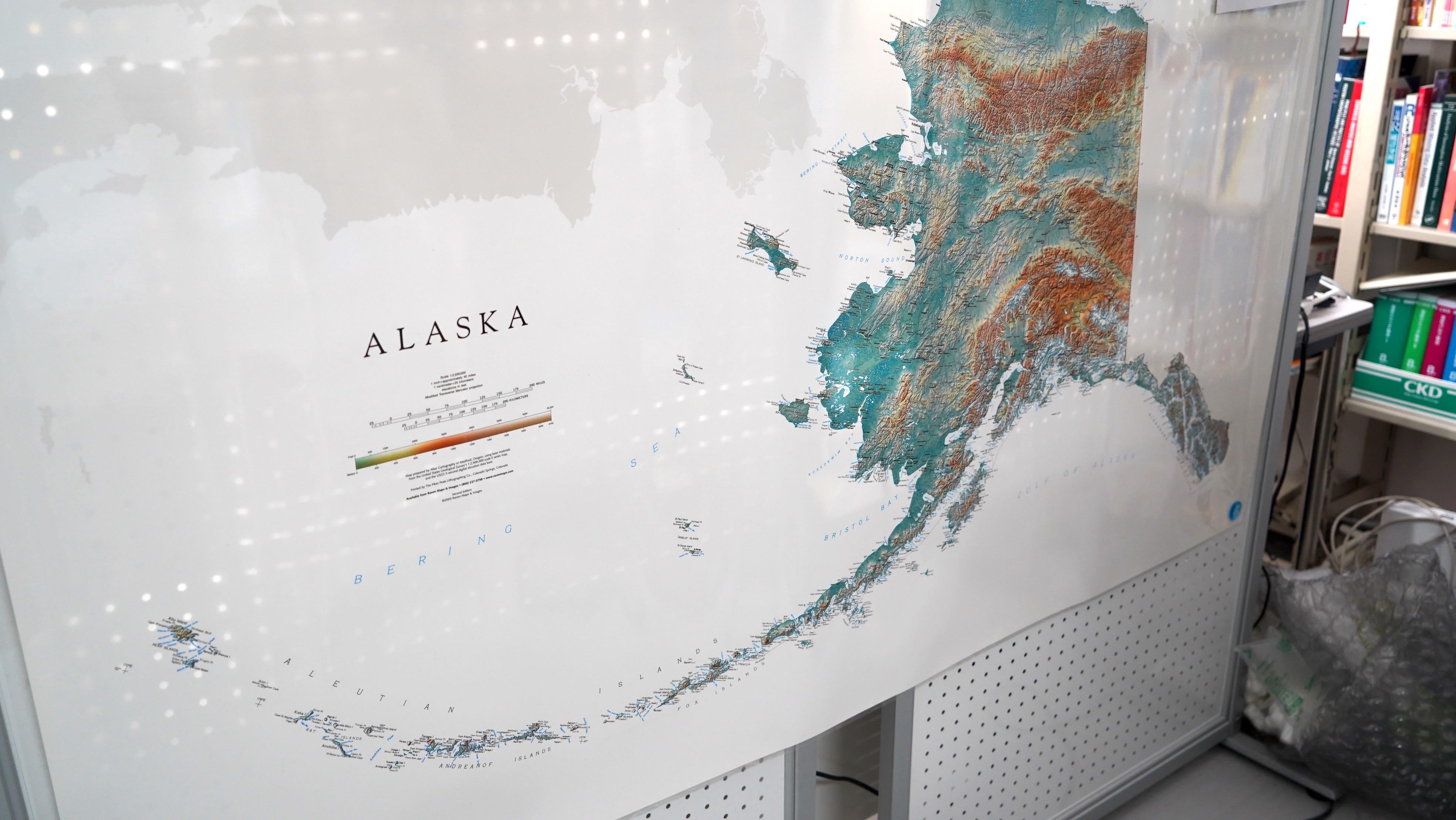 This is a map of Alaska, which is one of my favorite fields. I work out of
Fairbanks mostly.
This is a map of Alaska, which is one of my favorite fields. I work out of
Fairbanks mostly.
For more information on Associate Professor Iwata:
http://soar-rd.shinshu-u.ac.jp/profile/en.WCAaPafh.html
What do you specialize in? My specialty is micrometeorology. This discipline examines phenomena that occur in the atmosphere near the surface of the earth, up to about 1000 meters. In recent years, scientists are trying to clarify how greenhouse gases such as carbon dioxide and methane, which are thought to cause global warming, are exchanged between the atmosphere and the surface of the earth. And this exchange is greatly affected by the atmospheric conditions near the ground surface such as temperature and wind. I use my knowledge of micrometeorology to measure this greenhouse gas exchange on various surfaces. Currently, I am conducting research in the boreal forests of Alaska, Lake Suwa, and the alpine ecosystem of the Central Alps in Japan.
Why did you become a researcher? It's hard to explain the specific reason, but I took a year off during my master's program and spent time as a trainee at the University of Edinburgh. During this time, I was able to participate in observation programs in Scotland and the Brazilian rainforest. I discovered the joy of research during this time. Of course, the work of a researcher is not fun all of the time. However, having enjoyed researching during the gap year influenced me to decide to proceed to my PhD program and to become a researcher.
Could you give us examples of some moments you enjoy as a researcher? I carry out automatic observations in the field, and I am always looking forward to checking the collected data and seeing what kind of phenomenon is occurring there. It is very interesting to infer the natural phenomena occurring in the field from the changes in the numbers of the obtained data. We often make hypotheses and analyze data during research, and the moment when the hypothesis is proved by data analysis and research papers written based on it is accepted, I feel our efforts have been exonerated. Do you have goals you are currently working towards? My current research theme is methane emissions from lakes. The current goal is to produce important research results on this subject. Methane emissions from lakes are complicated by processes such as methane production and consumption by microorganisms, factors that affect them, and lake water mixing. We aim to clarify such effects and to be able to predict future changes in methane emissions from lakes. Another goal I have, although it is not a specific goal, is to continue daily research and accumulate such research. I would like to continue to constantly publish my research results as papers. Could you tell us about three items such as work tools or books? One of my favorite items is the observation sensor. Here are some photos of them in the field.
This is Suwa Lake.
And the rest are at observation sites in the Central Alps.
A reference book I enjoy. Although it is not necessarily new, it is an undisputed classic.
This is a map of Alaska, which is one of my favorite fields. I work out of Fairbanks mostly.
